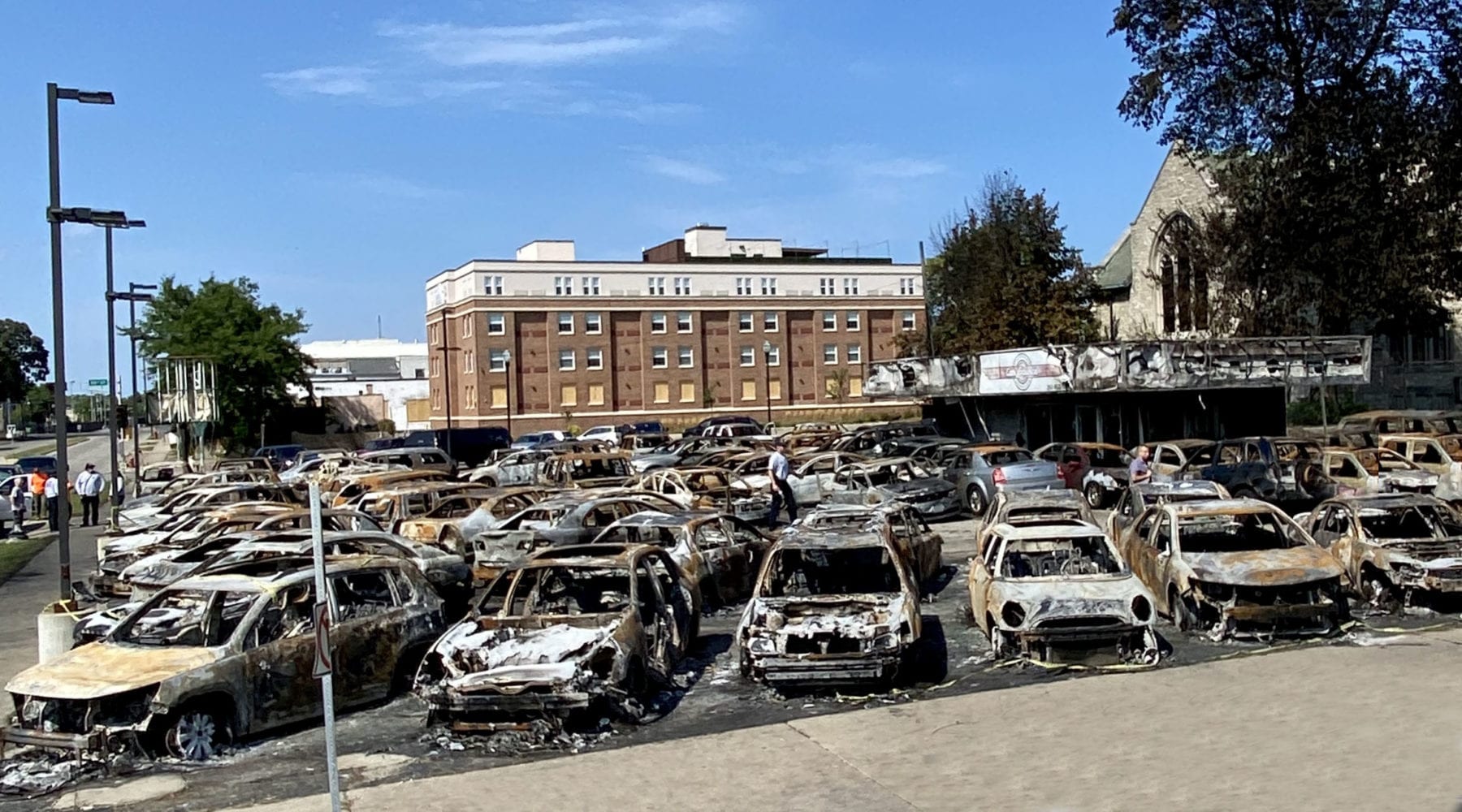
Many younger Americans in this day and age have taken up the cause of violence in the name of racial justice. Burning of storefronts, shattering of glass, and theft of the goods is not only contextualized against a history of racial oppression, it is largely minimized and outright supported by a vocal, if potent minority of Americans. A minority of young Americans.
Not only were American youth to be the single largest category of protester in general, they in most cases ended up being the largest category of violent protester as well. It is no surprise that the largest groundswell of support for the radical actions which occurred during the summer of 2020 came from American youth. Most American youth are exceptionally progressive by modern standards and far more willingly embrace openly violent ideologies such Marxism. Democratic Socialism feels like the centrist position among many American youth.
All of these trends can be easily traced by the world in which the current generation of young Americans have grown up. A jaded world ruled by soulless mega corporations, debt peonage, and finance. The transition to a consumer economy has totally destroyed the ability of Young Americans to make a sufficient and honest living, preventing the critical acquisition of assets and building wealth, via hourly wage labor. Without common factory work and the benefits and protections won by generations of prior industrial workers, the job prospects for American youth rapidly bifurcated into white collar college educated positions and low skill and low value hospitality (including food) and retail positions.
Not only was the middle was taken out of the American economic pyramid, but the gap between the bottom and top widened into a canyon. With the advent of the knowledge economy and the development of global capitalism and brands, a person fortunate enough (or wise enough depending on your view) to be a capable of software development in the early 90s and 2000s could have found themselves as a founder, principle employee, or even generic coder of a global behemoth like Google, Amazon, Netflix, or even Twitter.
The income/wealth inflation generated by these companies is so legendary that mere rumors of an office expansion primes property prices in the afflicted area through the roof. It would be the American dream come true, capitalism creating an entirely new economic sector, uplifting untold millions out of poverty yet again and creating thousands of rags to riches stories.
Except it really isn’t. Unlike Rockefeller and Carnegie, the titans of yore, who at the start of their young careers held no special skill beyond a willingness to work and came from abysmal backgrounds, the modern day titans of Bezos and Bill Gates came from fine Middle Class backgrounds and possessed unique computer programming skills typically only accessible through a university background. For the American Youth, the pathway for success seems to have been gated in a way like no other generation before.
Financial security and success stems from critical decisions made in adolescence, a period in time when most American Youth were hardly cognizant of the momentous import of their every decision. It is a system that seems rigged from the very start: you are being tested for fitness in the system before you even realize that their even is a system. By the time you realize the errors of your ways, its too late. The average American Youth is trapped in a viscous extended cycle of trying to grind out minimum wage jobs and temporary “gigs” to have some semblance of dignity and independence while simultaneously trying to obtain the coveted education necessary to enter into the upper echelons of society.
It is no wonder then that American Youth are so amicable to listening and supporting arguments revolving around structural inequality and implicit bias. It is a lived experience in their everyday life. The crushing boot of racial oppression closing doors and shutting down the life path of African Americans tastes little different than the crushing boot of economic oppression that holds many American Youth by a stranglehold.
The property and goods that the most radical youth set fire too and loot are at worst a glaring monument to structural racism and economic inequality; at best they are casino chips, the reward of pure chance. With little in the way of hard assets and accrued wealth, the concept of property ownership and the associated feelings of self worth, gratification, and achievement that come from purchasing a home or building an independent business are totally alien to them. While the owner of a torched business and homeowners across the country see the destruction as the loss of years and decades of hard work and sweat, the impoverished American Youth sees only ill gotten gains obtained through the workings of a fundamentally rigged and unfair system. Unable to empathize with their victims on a fundamental level, outcries regarding the destruction of property sound like French Revolution nobles complaining about a lack of cake.
An economically disenfranchised class of people naturally has no stake in the system and seeks destroy the system that oppresses them. It is no surprise then that some of the greatest unrest in nearly 60 years in the United States comes at a time when an entire generation has been seemingly priced out of system through no fault of their own. It is no surprise then that these events occurred at the same time as a global pandemic which crushed the industries which the American Youth relied on to have some semblance of use and function in the economic system.

















Add comment